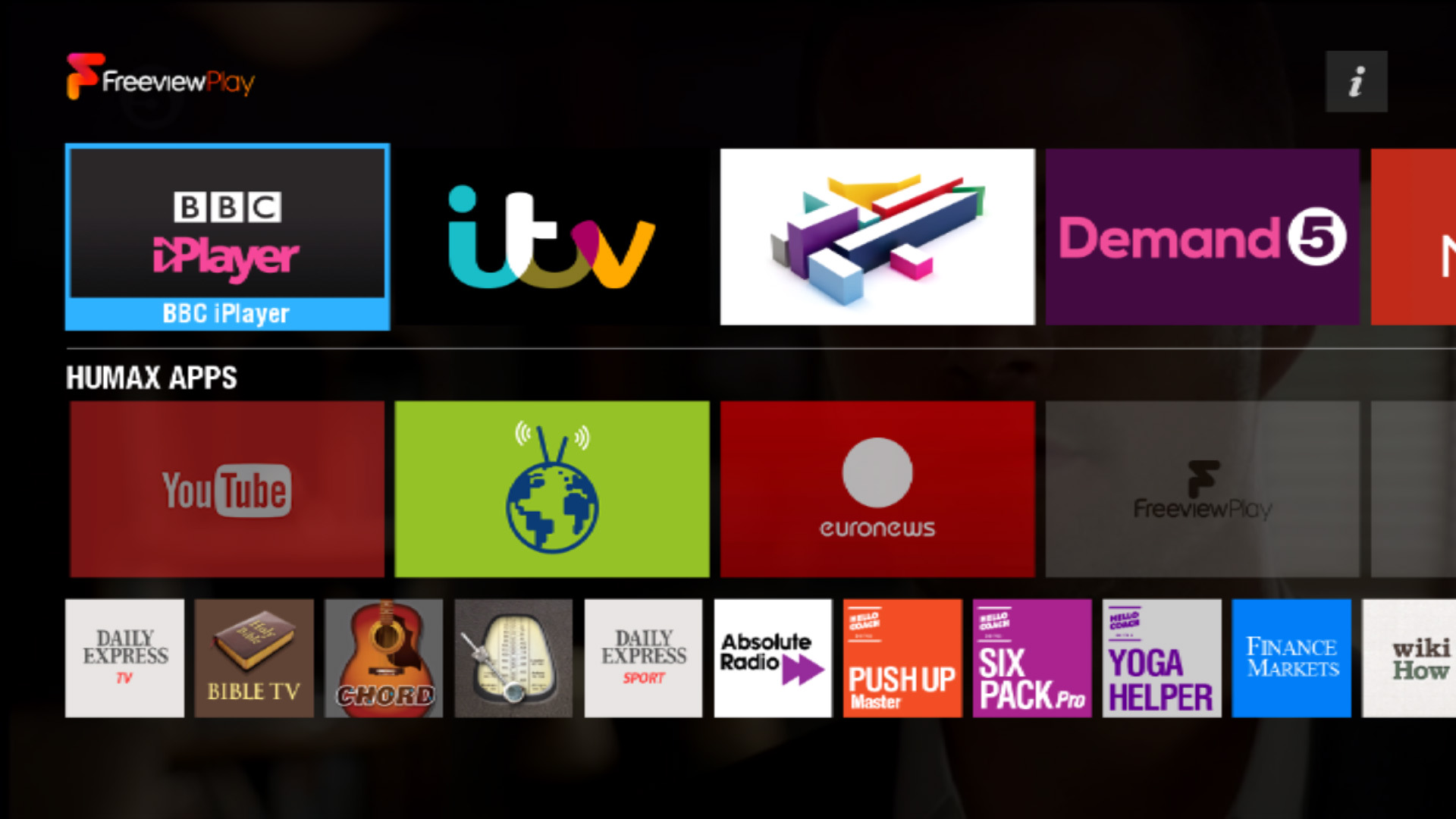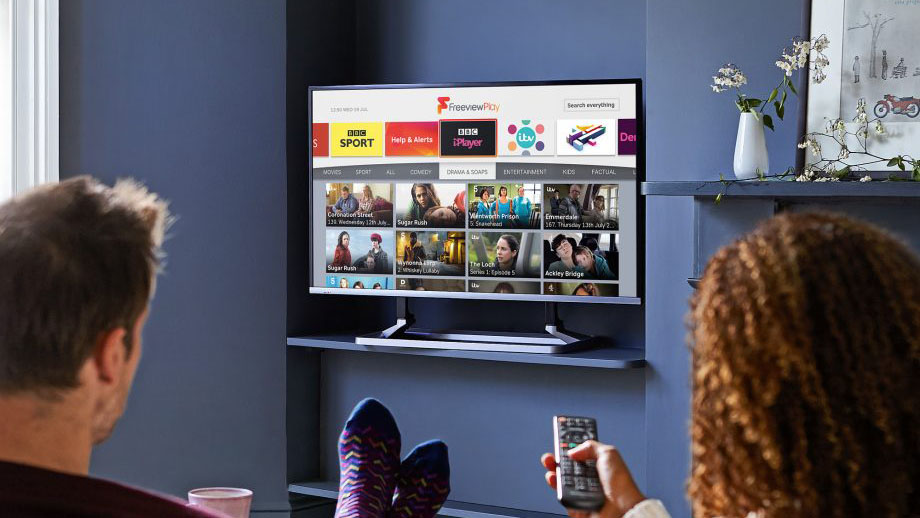Freeview is a mess on LG TVs – but there's a wider problem

If you bought an LG TV in 2019 – or 2020, for that matter – you may well have come across an issue with accessing Freeview Play, the free UK broadcasting service for both live and catchup TV. While Freeview Play contains a myriad of live and on-demand channels for free in the UK, this likely won’t have been the case on your TV.
In fact, you may have been hit by a blank screen or ‘Invalid Service’ error message, meaning you’re unable to access the likes of BBC iPlayer, BBC Sounds, BBC Sport, BBC News, ITV Hub, STV, All4, My5, UKTV Play, CBS Catchup, and more. But why?
Freeview Play has been a hot button issue for LG in the past couple of years. As of 2019, its televisions in the UK started losing support for the service, which is crucial for so many viewers in the UK. The company’s 2020 TV got some limited support for some Freeview Play channels and apps partway through the year, while 2021 sets will see the issue sidestepped entirely, but the causes of this mess are even more maddening than the symptoms.
Note that this is not a problem shared by new Samsung TVs or Panasonic TVs, while Android TVs made by the likes of Sony and Philips also only support Freeview Play as of their 2020 ranges.
It has taken nearly two years to get to the bottom of this strange fault, but after a lot of digging, cross-referencing and a certain amount of flinging remote controls about the place, we finally found the cause – and discovered hundreds of other users who had the same problem with their TVs.
So, for them and for you, let us explain how Freeview on LG TVs became such a mess, and what’s being done to sort it out.
- What is the best LG TV?
The Freeview fiasco
Freeview covers a pair of distinct services: Freeview and Freeview Play, with the latter adding PVR, internet and HD capabilities to the Freeview platform.
The launch of Freeview Play opened the door for another type of channel – streaming media, or hybrid IPTV. These services work by assigning a channel number, but with the content coming from a live internet stream. This allows Freeview to broadcast many more channels to those with compatible equipment and a working internet connection.
Freeview’s broadcasting standards are kept in what’s known as the ‘D Book’, a guide for manufacturers on exactly what makes a Freeview product. Since the days of ONDigital, the D Book required the MHEG codec to be used for interactive services. However, globally, the industry has been moving towards the more efficient HBBtv (Hybrid Broadcast Broadband) standard – and therein lies the rub. When the D Book was last revised, it introduced the requirement that HBBtv was to be the standard going forwards. This presented two problems.

Firstly, existing broadcasters weren’t given a deadline to migrate by, and as of April 2021, most IP services are still broadcasting in the older MHEG standard. Two of these channels, Channelbox and Vision TV, are portals for a range of nearly 60 services (this is known as ‘OTT’ or ‘over-the-top’ – a catch-all for any IP service delivered over the internet rather than cable or broadcast).
Secondly, some manufacturers took “use HBBtv” to mean “remove MHEG support”. Sure enough, LG released its 2019 range without support for MHEG – hence the ”Invalid Channel“ message. It’s not that the TVs can’t decode MHEG – it’s just that LG has actively decided to turn the facility off for UK users.
At last, some answers. The problem is, LG was the only company that could ‘fix’ our TV, as it were, but LG’s stance was that we should talk to Freeview. So we did.
Freeview told us that “The Freeview Play specification no longer requires manufacturers to support MHEG channels, and some manufacturers are now producing HbbTV-only devices. It is up to each channel provider whether or not to provide its service in MHEG only, or in HbbTV, to be compatible with some of the newer HbbTV-only devices.
“Currently, most internet delivered channels are still in MHEG. We expect more providers to decide to make the move to HbbTV as the number of HbbTV-only devices increases. In the meantime however, for viewers that have been impacted by this, we recommend getting in touch with the channel in question for advice on how they can continue to watch the service. We will also be working with all of our partners to make this information clearer to viewers.”
The plot thickens
This leaves the question, why was the D Book updated without a deadline for channels to migrate? Setting a changeover date would have prevented all this from happening. The decisions were taken in 2018, so there’d have been plenty of time to have a migration process.
The most alarming part of all this has been the attitude of LG, which was the first to stop supporting MHEG on new products. Customers contacting the company have been met by a brick wall of ‘not our problem’ responses. Some even claim they were told it was “because your signal is too strong”. We finally got a statement on the problem out of the company, and it raised more questions than it answered.
LG’s statement reads as follows: “Initially in 2017/18, LG supported dual-stack receivers (i.e. running both HbbTV and MHEG), but maintenance quickly proved unviable due to a lack of engineers globally, and as such, from 2019, LG only made HbbTV-only devices. HbbTV more closely follows W3C Internet-based specifications which also makes it a more suitable and economic technology to deploy.“
What’s confusing, though, is that LG sets still support MHEG in other countries. Switching our TV’s location setting to ‘Ireland’ and ‘Saorview’ will even see the MHEG services start working (however this has several side effects which make it untenable as a proper workaround).
LG tells us that “It was the broadcasters’ decision not to keep up – LG was not party to such discussions”, and that customers can always “buy a second-hand model” with full Freeview Play support if needed, which is an astonishing thing to hear after spending hundreds of pounds on a brand new television.

What are channel providers doing?
We asked the main providers of these OTT streaming services whether they have plans to migrate to HBB format.
Synapse TV, owners of Channelbox and several other Freeview services told us that HbbTV versions of Channelbox “and many other of our OTT and Stand-alone MHEG services” were ready to launch and would be arriving “in the coming weeks.”
Vision247, which runs the Vision TV portal, confirmed that HBBTV applications were in progress and would likely launch before the end of 2021.
It’s great to know that these providers are planning to migrate, but the woolly timescales involved suggest that this could remain an issue into 2022, and the lack of urgency (or provision of a deadline by Freeview) demonstrates just how badly rolled out this process has been. In the next couple of years, Freeview will start offering internet streams as a backup to the broadcast signal – meaning a cohesive policy will be even more important.
The services affected here are largely of minority interest: overseas news channels, religion, shopping and children's channels. But with Freeview becoming the default way to watch TV in the UK, it should be reasonable for the consumer to assume that if they buy a TV or STB marked “Freeview Play”, they’ll get the entire offering. It’s fair to say that (reception permitting), any Freeview-enabled equipment on sale today will be able to receive all conventional DVB-T channels.
Additionally, as all parties are at pains to point out, nobody has actually done anything wrong here. But that just means there’s nowhere for the buck to stop – and the customer is the victim.
Freeview adds that, “While Freeview supports a move over to HbbTV, we also operate an open TV platform. This means it remains a decision for each individual channel provider whether or not to provide its service in MHEG only, or in HbbTV, to be compatible with some of the newer HbbTV only devices. Currently, most internet delivered channels have decided to remain broadcasting in MHEG.
“However, we expect this to change as the number of HbbTV only devices increases, and we are in active discussions with the channels affected to support a move over to HbbTV.”
In a couple of years, this should (hopefully) all be behind us, but if you are shopping for a TV in the meantime, the only advice I can give you is to check the detailed specs of a product before you buy it.
It shouldn’t be necessary – the Freeview Play brand should be a guarantee of conformity – but as we’ve made clear, it’s very much a case of ‘buyer beware’.
This isn’t a problem you’ll have buying new 2021 LG TVs, but anyone making do with a 2019-2020 model is having to look to even older models, or brand new ones, to get the functionality they’ll have expected when buying a new TV in the UK.
As with so many things, the technology is moving faster than the policies, and it’s the end user that is being left carrying the can.
- Best TV 2021: what screen should you buy?
from TechRadar - All the latest technology news https://ift.tt/3dqgQoy

Post a Comment